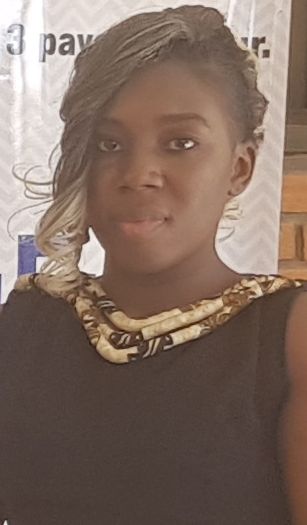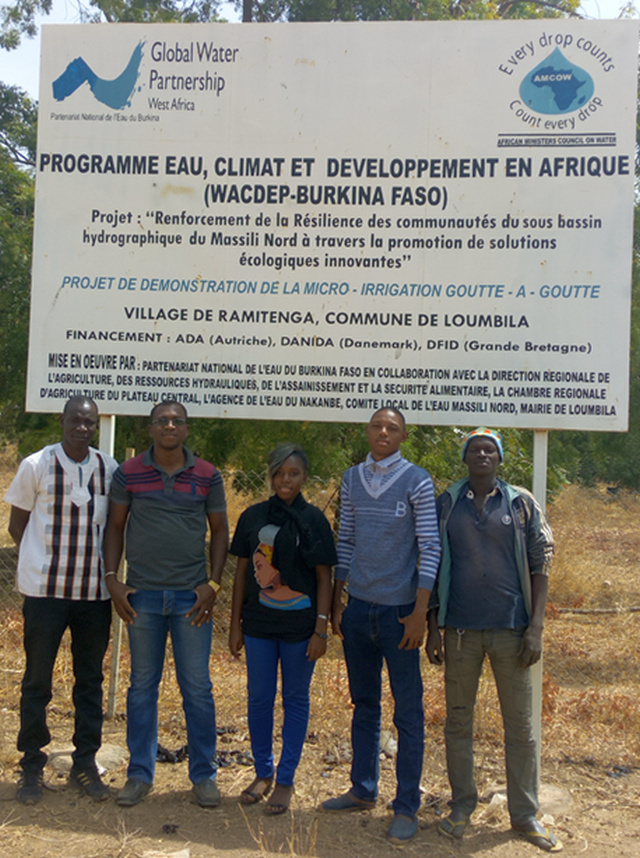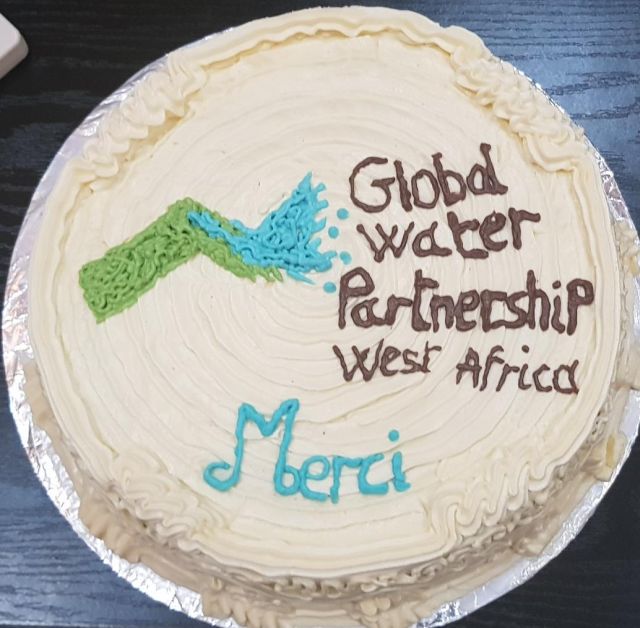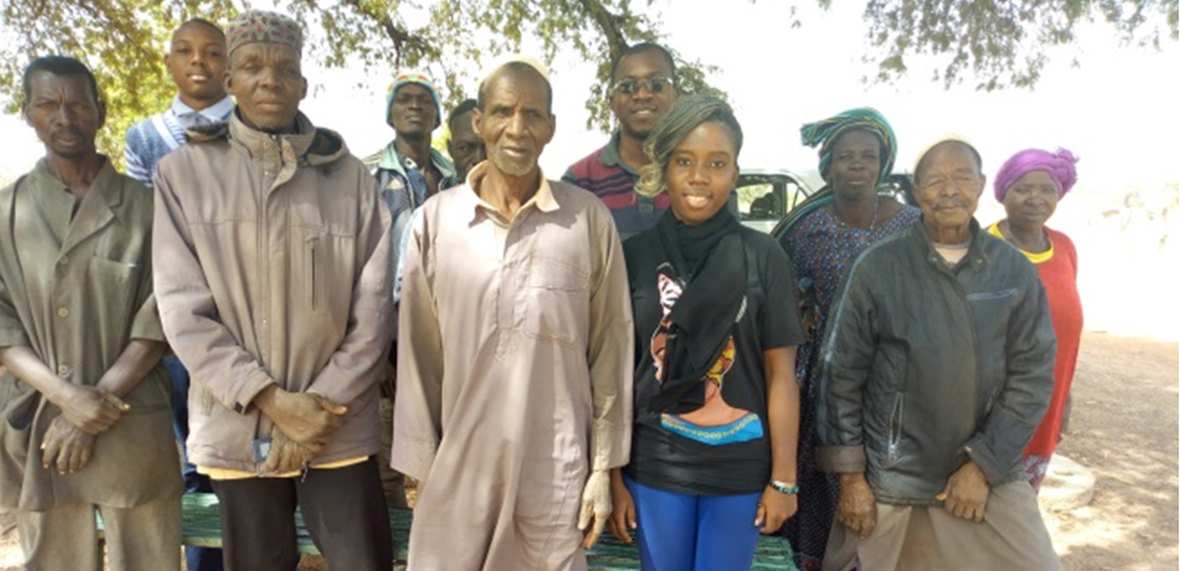 For those who do not know, the Global Water Partnership (GWP) is an international network, designed in 1996, that aims to facilitate and support countries in driving change for the sustainable management of their water resources. Its headquarters are based in Stockholm, Sweden. It brings together 13 regional water partnerships including the Global Water Partnership West Africa (GWP-WA).
For those who do not know, the Global Water Partnership (GWP) is an international network, designed in 1996, that aims to facilitate and support countries in driving change for the sustainable management of their water resources. Its headquarters are based in Stockholm, Sweden. It brings together 13 regional water partnerships including the Global Water Partnership West Africa (GWP-WA).
Global Water Partnership West Africa (GWP-WA) was established in 2002 between water partners in the West African sub-region. It is made up of GWP member organisations and partners, at regional level and in the various West African countries, in order to identify and exchange on water-related issues, develop action plans based on IWRM and implement programmes and projects contributing to water security for sustainable development. GWP-WA is in Ouaga 2000 in the Burkina Faso capital city, Ouagadougou.
I first discovered the name of GWP-WA as one of the structures of the water sector in Ouagadougou in which I could as a future engineer expect to have a good supervision and a good professional experience when discussing with a relative. I then did some research on the internet to find out more about GWP-WA and also the exact geographical location of its secretariat where I finally applied for an internship.
I should say that I was a little surprised that my internship application was accepted when it was notified to me through a phone call. Thus, I had an interview with my internship supervisor who briefed me on the activities taking place within the Secretariat. My first impression after this exchange was that I had a lot to learn because all the aspects covered in this small interview included many new things for me. We were still in the first semester of the third year of the bachelor's degree and there were notions that I had not yet seen in class and that should serve to better guide the course of my internship. So, I was looking forward to starting this internship which, at the end, was very formative for me.
Monday January 28, 2019 was my first day in the GWP-WA. Not knowing where to put my head, I was invited to take part in the weekly meeting of the Secretariat staff where I was introduced to the rest of the personnel I was meeting. I was very well received by all the staff, each of whom expressed their willingness to accompany me during my internship. I was much impressed to know that despite their rather busy schedules, they all offer to help.
During my immersion period, I took part in other weekly meetings that allowed me to better understand the activities of GWP-WA and to have a clearer vision of the fields of action of a water and sanitation engineer outside a laboratory. The working environment was pleasant with a good atmosphere between the staff. I don't know if it's an opportunity, but I was particularly happy to work with Mrs. VODOUNHESSI Félicité, a very competent internship supervisor and a good teacher. Too bad the internship lasted only forty-five days!
The theme of my internship was the involvement of young people and women in the implementation of the Water, Climate and Development in Africa (WACDEP) program in Burkina Faso. The objective is to determine the role of these target groups in the activities carried out within the framework of the pilot project in order to better involve them in taking their needs into account.
What is WACDEP?
I know that the question is on the minds. Well, it also took me several days to go through the documentation to discover not only the Programme which covered 8 African countries (now extended in the second phase to 12) and 4 transboundary basins and aquifers (5 in the second phase) including Burkina Faso, Ghana and the Volta Basin in West Africa but also the pilot project implemented in Burkina Faso in the village of Ramitenga to fully understand the implementation process and the results achieved. Reading all this documentation allowed me to acquire new knowledge on the different activities prior to the implementation of such a project.
WACDEP stands for Water, Climate and Development Programme in Africa. It is a programme developed by the Global Water Partnership (GWP) to support an initiative of the African Ministers’ Council on Water (AMCOW) in the implementation of the commitments of African Heads of State.
 I discovered that the WACDEP-Burkina pilot project aims to use solar energy for drip irrigation as a solution for climate change resilience and poverty alleviation. The final goal of this project is to manage agricultural water efficiently (drip irrigation) for the benefit of vulnerable populations in the village of Ramitenga, a rural commune of Loumbila in Burkina Faso. A system has therefore been set up with the participation of the project's beneficiary members (the SIDWAYA association), in order to set up and manage the site.
I discovered that the WACDEP-Burkina pilot project aims to use solar energy for drip irrigation as a solution for climate change resilience and poverty alleviation. The final goal of this project is to manage agricultural water efficiently (drip irrigation) for the benefit of vulnerable populations in the village of Ramitenga, a rural commune of Loumbila in Burkina Faso. A system has therefore been set up with the participation of the project's beneficiary members (the SIDWAYA association), in order to set up and manage the site.
A field survey
During my internship, accompanied by the young professionals of the GWP-WA Secretariat, I carried out a field fact-finding mission in Ramitenga to meet and exchange with the women and youth of the Association. The analysis of the results of the survey showed that women and young men were involved in the implementation of the various activities of the project. In addition to the activities that were carried out collectively, the women had to prepare the meals and the youth helped with the masonry work.
The main difficulty encountered by women and young men was when digging the holes for the installation of the wire fence due to the lateritic nature of the soil, which required great physical strength. The cleaning up the site was easily carried out by women and young men.
Given the limited organizational capacities of rural community actors in general, we recommended strengthening the management capacities of rural community associations and on the effects of climate change on agricultural activities in order to generate more interest and involvement of young people and women in collective climate-resilient development initiatives.
In terms of lessons learned, I leave this internship well equipped with a better understanding and experience of working under pressure and ready to invest myself in all the areas where I will be called upon.
Rabia Faousia OUEDRAOGOGO
Student 2IE,
3rd year of B.Sc. in Water & Sanitation

